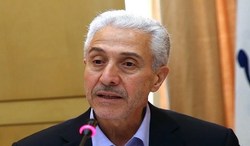 Iranian Minister of Science, Research and Technology Mansour Gholami underlined that the unilateral sanctions imposed by the US on the Islamic Republic has made the country’s scientific projects work harder towards substantial growth.
Iranian Minister of Science, Research and Technology Mansour Gholami underlined that the unilateral sanctions imposed by the US on the Islamic Republic has made the country’s scientific projects work harder towards substantial growth. RNA - “Sanctions are an opportunity for the scientific sector of the country,” Gholami said on Tuesday.
He reiterated that sanctions imposed by enemies against the country have created scientific advantages in various sectors.
In a relevant remarks on Monday, a senior official at the Food and Drug Administration of Iran said that the country has exported hundreds of different types of medical equipment to over 50 world states in the first six months of the current Iranian year (started on March 21) despite the US tough sanctions.
"Fortunately, 30 of our production companies have managed to receive international quality certificates, including SE, and could export their goods to some European and South American countries," Director-General of the Food and Drug Administration of Iran for Equipment and Necessities Affairs Seyed Hossein Safavi told FNA.
"We have managed to export 363 products to 55 countries in the first 6 months of the current year," he added, saying that Iran had exported 261 types of different products to 45 states in the same period last year.
Iran has taken long strides in producing different types of drugs and medical equipment and exported them to many foreign states.
The country last month unveiled 6 new indigenized knowledge-based products with medical uses.
The products which were unveiled at Shiraz University of Medical Sciences had all been manufactured by Iranian experts.
They include absorbable and non-absorbable surgical yarn, Dia Diet chocolate usable by diabetic patients, haptic technology, also known as kinaesthetic communication or 3D touch, which refers to any technology that can create an experience of touch by applying forces, vibrations, or motions to the user, laparoscopy set for operations performed in the abdomen or pelvis using small incisions with the aid of a camera, video laryngoscopes (VLs), which are rigid devices that allow indirect laryngoscopy or visualization of the vocal cords and related airway structures without a direct line of sight, and the technology to extract and purify compounds of medicinal plants.
Also, Iranian Vice-President for Science and Technology Sorena Sattari in July unveiled 8 new drugs during his a visit to the knowledge-based companies in Alborz province near Tehran.
The newly-developed drugs include Micro-Peltamparazole, Tamsulosin hydrochloride, Naltrexone base, Citalyptin phosphate, Peo gliatzone and other medicine.
The drugs have applications in treatment of digestive diseases and intestinal insufficiency, and will also be exported to the regional states.
847/940